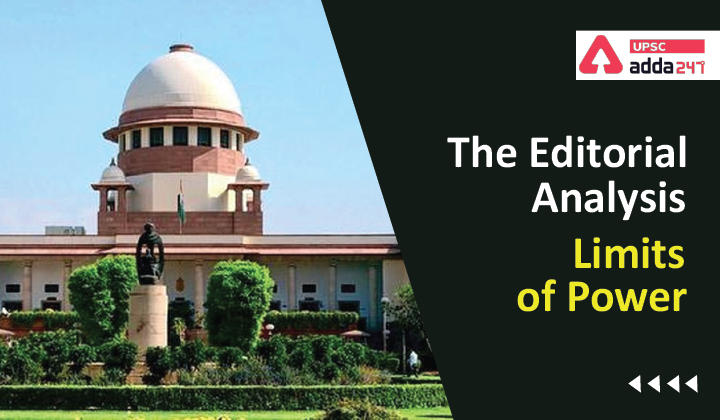Table of Contents
Suspension of MLAs in Maharashtra- Relevance for UPSC Exam
- GS Paper 2: Indian Constitution- Parliament and State Legislatures – structure, functioning, the conduct of business, powers & privileges and issues arising out of these.

Suspension of MLAs in Maharashtra- Context
- Recently, the Supreme Court ruled that the one-year suspension imposed last year by the Maharashtra Assembly on 12 BJP legislators was illegal and irrational.
- With this judgment, the Supreme Court has set the limits of the legislature’s power to deal with disorderly conduct in the House.
Suspension of MLAs in Maharashtra- Supreme Court’s Decision
- Illegal decision: SC has laid down a significant principle that the effect of disciplinary action cannot traverse beyond the session in which the cause arose.
- Therefore, the suspension beyond the duration of the session was illegal.
- A suspension is a self-protective tool rather than a punitive measure: Citing past precedents, the SC said that the power of the House to suspend a member is essentially defensive or ‘self-protective’ and it should not assume a punitive character.
- Rationale behind suspension power: The need to exercise the suspensive power was limited to restoring order in the House.
- Logically, it was not needed beyond the day, or in case of repeated disorderly conduct, to the session so that scheduled business could be completed.
- Unrepresented Constituencies: the year-long suspension will mean that the constituency remains unrepresented, while there would be no vacancy to be filled through a by-election.
- Generally, if a member is expelled by a resolution of the House, the Election Commission is bound to hold a by-election within six months and the member could seek re-election.
- This reasoning also makes the House’s decision to suspend 12 MLAs for a year, illegal.
Suspension of MLAs in Maharashtra- State Government’s Rationale
- The State government argued that there was no limit to the action that the House could take for maintaining order and the Court could not examine the proportionality of the action.
- Rule 53 of the Assembly allowed the Speaker to adopt a graded approach to disorderly conduct;
- Naming members after which they should withdraw from the House for the day, and, in the case of the conduct being repeated, for the rest of the session.
- The Government insisted that the suspension was imposed under the inherent power of the Assembly to ensure orderly functioning.
- The state government said that Article 212 of the Constitution bars the judiciary from examining the regularity of the procedure adopted by the House.
- SC ruled that the present action was illegal and irrational, and not a mere irregularity of procedure.
Suspension of MPs from Parliament
Suspension of MLAs in Maharashtra- Way forward
- In an era when the government side accuses the Opposition of being obstructionist, and the Opposition alleges that it is being silenced, it is gratifying that the higher judiciary grapples with questions related to the limits of the power exercised by the majority in the legislature.



 TSPSC Group 1 Question Paper 2024, Downl...
TSPSC Group 1 Question Paper 2024, Downl...
 TSPSC Group 1 Answer key 2024 Out, Downl...
TSPSC Group 1 Answer key 2024 Out, Downl...
 UPSC Prelims 2024 Question Paper, Downlo...
UPSC Prelims 2024 Question Paper, Downlo...




